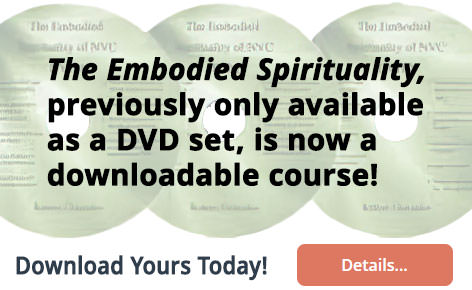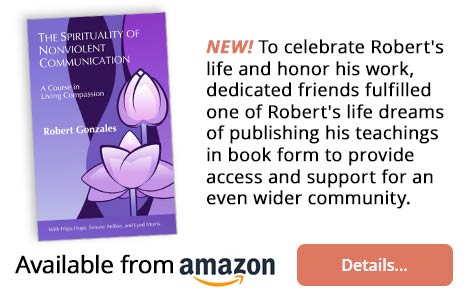

Welcome to the Robert Gonzales Training Legacy. Here you can learn more about Robert and the powerful teachings he dedicated his life to. NVC Academy is proud to house and share with you the complete body of his life's work. We invite you to explore, learn, and help keep his legacy alive!
Robert's passion was in the spirituality of the Nonviolent Communication (NVC) process. He saw NVC both as a process that helps people connect more authentically with themselves and others, and as a spiritual practice and way of living. The worldwide NVC community mourned when Robert died in 2021. He left behind a legacy of work that emerged from a lifetime of inquiry into the intersection between spirituality and human communication. More about Robert.
Article
10 - 15 minutes
There's a growing trend to elevate feelings and personal truths (aka MY truth) to the point of being unassailable "facts". If I feel unsafe, then it must be because of you. As valid as a person’s inner world is, we risk overlooking what's beyond our own views, such as larger forces around us that continue to underwrite exploitation, violence, “othering”, etc. Instead, describe specific words and actions that a camera would record.
Details...Video
13 minutes
Mediation is a great skill to have whether it's for your personal relationships or in the workplace. We look at four different techniques and their benefits in a role-play that takes place in an informal, unorganised setting.
Details...Video
18 minutes
Have you been struggling with the difficulties that can arise from working at home? If you're used to working from an office, a space that is designed for work, it can be a shock working from a space that is usually associated with other kinds of activities. In this Life Hack, we look at ways that NVC can help you deal with potential conflicts that arise.
Details...Trainer Tip
1 - 2 minutes
Trainer Tip: When we match might with might, we create discord, frustration, and separation from other people. Instead, place aside your urge to be right or to win. Approach charged situations with a sincere desire to be honest, and to value everyone’s needs including your own. The way you show up is a valuable asset. You may not get what you asked for but you can increase your chances of meeting your needs for integrity, and more.
Details...Practice Exercise
4 - 6 minutes
One way of simplifying decision-making in relationships is clarity about the level of contact and connection you want with the people you interact with. This means knowing what you want and don’t want to share, the kinds of activities you do and don’t do together, how often, etc. This can help you chose how to best support your needs in that context, and help you to remember to set life-serving boundaries when you need them.
Details...Trainer Tip
1 - 2 minutes
Trainer Tip: You may find yourself assessing the relationship with someone just based on how they feel. Check in with yourself: How do you feel and what needs of yours are met when you spend time with someone? Consider whether this relationship is working for you. If it isn’t, be specific about which of your needs are unmet. Notice if you can do anything to help meet them.
Details...Audio
4 hours, 25 minutes
Listen to this 4-session telecourse recording with CNVC Certified Trainer, Hema Pokharna, PhD and her sister, Manda Pokharna, MD, and you will learn simple steps for transforming conflicts and mobilizing peace at home, at work and in the world.
Details...John introduces his Self-Connection Exercise as a mindful way of coming to awareness via OFNR. Breath: immediately observable, a reminder to observe. Body: feeling the body, awareness of sensations. Needs: an experience of wholeness that expands awareness of the totality of experience. Listen.
Details...Article
8 - 12 minutes
Here we explore variants of conflict patterns in part two (of this two part series) that include: refuting "straw man arguments"; not checking understanding, repeating unhelpful behaviour; repeatedly asking for what's already given; asserting rather than demonstrating responsiveness; assumptions; denying conflict exists; neglecting interdependence; stonewalling; absence of curiosity, humility, respect, empathy or care (even when reflecting).
Details...Article
6 -9 mins
To resolve conflict, information of what's important to each party, plus corrections, needs to be included and built upon. Here we explore nine patterns of ongoing conflict, including diagnosis; assuming understanding; refuting; unhelpful communication mediums; over focus on intent over effect; and “hit-and-run” engagement. This is part one of a two part series.
Details...

